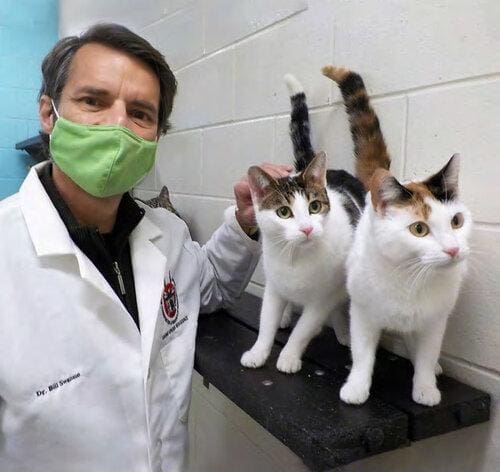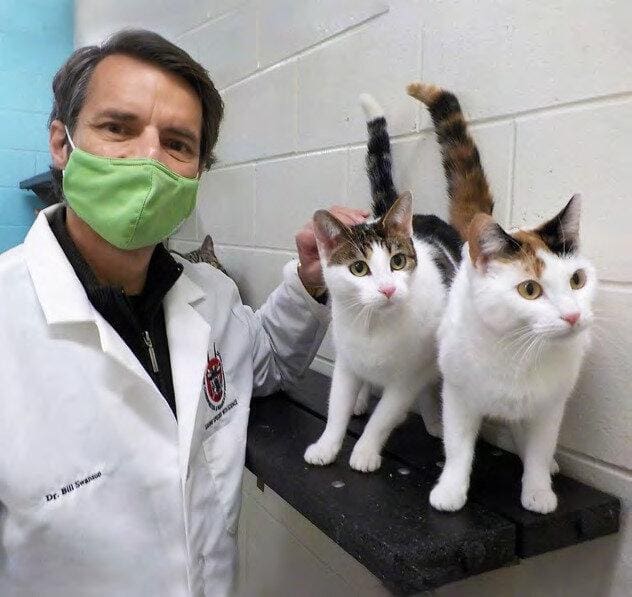Dr. Gary Michelson has pledged a $25 million prize to the first entity that develops a single-dose nonsurgical sterilant for dogs and cats.

Dr. Bill Swanson, director of the small cats program at the Cincinnati Zoo’s Center for Conservation and Research of Endangered Wildlife, with two of his study cats.
In 2019, 5.3 million companion animals entered U.S. shelters. Of that number, hundreds of thousands of healthy and adoptable animals were unable to find homes and were euthanized. No other disease or condition takes as many lives. As a preventative measure, traditional spay-and -neuter is the current approach for sterilization. But that process can be costly and comes with the risk of anesthesia and surgery.
Launched in 2008 as part of Michelson Found Animals Foundation (MFA), Michelson Prize and Grants is focused on improving animal welfare with a $75 million commitment from Dr. Gary K. Michelson. Dr. Michelson pledged a $25 million prize to the first entity that develops a single-dose nonsurgical sterilant for dogs and cats. To under – write those research efforts, Dr. Michelson has pledged an additional $50 million in research funding support, which to date has invested more than $17 million into 38 projects.
The prize has garnered interest from scientists whose research interests may fall well outside of animal welfare. “We’ve received grant proposals from neuroscientists, cancer researchers, immunologists, chemists, and physiologists,” says Dr. Thomas J. Conlon, who joined MFA as chief scientific officer in 2017. “They’re not veterinarians, they’re not necessarily focused on reproduction, but they have a technology that could be used to help us achieve this goal.” Of the 38 projects funded, 11 have been with international groups.
In recent decades, new vaccine and gene transfer techniques have emerged that could help achieve the goal of a safe and permanent nonsurgical sterilant. “With the Prize, we can encourage various scientific groups with these new technologies to apply for a grant proposal with us,” Dr. Conlon says. Once a sterilant is identified, MFA will guide the product through clinical trials and regulatory approval, manufacturing, marketing, and distribution to ensure that the sterilant has the maximum possible impact in minimizing animal-shelter euthanasia.
In 2016, MFA began a new phase in its quest to develop a nonsurgical sterilant for companion animals when it began directing its own research using Adeno-associated Virus (AAV) gene transfer technology and ideas developed internally. “We fund this research working with contract research organizations (CROs) or academic institutions,” says Dr. Conlon.
Of the 12-member Scientific Advisory Board, he notes, “Many are veterinarians, but others are scientists with decades of laboratory experience in their own specialties or researchers who have been involved in a veterinary drug development— all of whom have been useful throughout this project.”
Over the last decade, the board has reviewed 136 full proposals with a process “that’s as rigorous as an NIH review,” Dr. Conlon says, but the group’s work isn’t done yet. “We still have $33 million that we’d like to award for breakthrough research.”
Find out more about the diverse areas in which Michelson Philanthropies are engaged, and Alya and Dr. Michelson’s commitment to “make the world a little less unfair” in our 2021 Impact Report.

